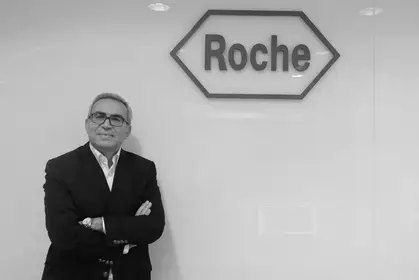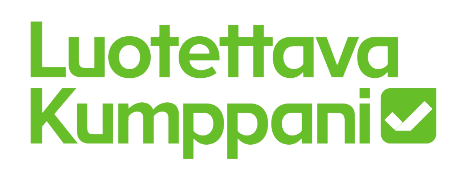The Tunisian physician could well be a trusty ambassador and soldier of the Swiss pharmaceutical giant. He has been with Roche for 26 years, and 22 of these were spent living and working in different geographical regions. The company operates in 156 countries and Dr Mejri has served as General Manager in three – Saudi Arabia, Malaysia, and twice in Indonesia.
The training and cross-posting of senior executives is a definitive advantage for Roche. Its leaders are given the international exposure and perspective that empower them to hone competencies for change and cross-cultural management.
Speaking to Kestria Institute from Jakarta, where he has been assigned for the second time in 14 years, Dr Mejri says, “The fundamentals of being a successful leader are fairly consistent across all regions. That is, being strong in communication, strategy, empowerment, and mentoring talent. It is how a person demonstrates these leadership fundamentals that varies significantly across cultures.”
There are enduring and common aspects of leadership in whatever country and it is critical that the focus of leadership development would be on strengthening fundamental leadership skills and then immersing leaders in environments that prompt them to adapt what they know about leadership to a local context.
Dr Mejri - whose experience spans the Middle East and North Africa, Sub Saharan Africa and Southeast Asia - believes that while there are nuances between different cultures, what ultimately determines the success or failure of a leader is his or her ability to adapt global leadership competencies to the local environment.
“Culture is just one aspect,“ he points out. “Regardless of where you work, you need to be empathetic and take individual differences into account. But you also need to be tough enough to let some people go if they’re derailing the project. You have to create a sense of urgency, but also have the patience to bring everybody on the team along.”
Diagnosing and communicating change
Dr Mejri’s points to the leadership capacity to implement as the greatest challenge in change management.
He shared an insight about his first experience in Indonesia. Shortly after his arrival in late 2003, Roche decided to divest its OTC (over-the-counter medicines) business including the Jakarta manufacturing site. The move was to reinforce Roche's strategy of focusing on its innovation-driven pharmaceuticals and diagnostics divisions.
“It was my third international assignment, but my first in Southeast Asia. I was determined to put aside all the clichés I heard about Indonesia’s culture at work and be open and humble about my need to learn.”
Dr Mejri believes in hindsight that his clinician’s background helped a lot in terms of listening patiently, learning about people and communicating the need for change on a more personal level.
“What I learned in Indonesia is that it is doubly important to be aware of your own emotions and how you manage them. People here do not expect their leader to show frustration or anger, even though it may be perfectly legitimate and accepted in other places,” he said.
The restructuring went flawlessly and the new organization realigned to not only maintain competitiveness but also become the market leader in oncology and in personalized healthcare.
“You will only be successful in leading others if you have their trust,” he muses. “They will not understand the need for change and be engaged in driving it if they don’t trust you.”
Organizational or country culture?
Culture often doesn’t get the attention it deserves when it comes to business success. Peter Drucker famously said, “Culture eats strategy for breakfast.” While Dr Mejri says leaders need to address both culture and strategy in tandem while spurring change, he believes the problem with culture is that everybody interprets it differently.
“It is all too easy to blame the country’s culture and expect people to toss aside thousands of years of tradition to behave like we want them to,” he stresses. “I have often come across expat leaders considering shyness as a handicap towards career progression for Asian managers and failing to see that ‘aggression’ can be overwhelming in some places like Indonesia.”
Cultural awareness is about embracing differences and pulling the right levers at the right times to get the best out of your team. The Roche chief recommends emphasis to be put on organisational culture, which is the reference point and has evolved through years of corporate leadership.
After all, Western culture can also be empowering for Asians. “If there is no culture of transparency or if everything is top-down, do not expect people to be courageous or speak up,” he says. “That is why I approach this cultural dimension with a lot of care and discernment, ” Dr Mejri says.

Misconceptions on Asian culture
Dr Mejri is the first to discount perceptions that Asian talents do not make good global managers.
“We used to say Asian talents did not do well when we took them out of their market to Switzerland or San Francisco. That’s simply not true: most Asian talents have not been given the immersive experience needed to succeed in a global role.”
We are witnessing a change today and more Asians are being provided with opportunities to serve on global teams and to build relationships with others in different geographical regions.
This will lead to a stronger contribution and ultimately dispel the myth that Asian culture is incompatible with strong leadership or global skills.
“It’s simply that the capabilities and profiles (for leadership) are defined by Westerners. You have to be vocal, you have to be an extrovert or noisy, to be perceived as a strong leader. Well, you won’t see that in Asia. You have to get the best out of people while respecting who they are,” Dr Mejri enthuses.
Top General Manager traits
So how would Dr Mejri choose a general manager for Southeast Asia? There are top 4 qualities he would be looking for:
- Communicates clearly and sincerely
- Possesses the strategic agility to balance short and long-term goals
- Strives for extraordinary results: “If you are asking ordinary things from your team, if you are not unlocking the door to higher performance, you will not be successful in inspiring them.”
- Invests time in people development.
“Adaptability is also extremely important. Repeated success can drive you to become complacent, and to overlook the importance of people,” he cautioned.
At each country he has been posted to, the Tunisian physician has employed the same step-by-step process in diagnosing and responding to issues, bringing about desired changes and achieving business goals.
“First of all, I tried to understand the organisation and the market -- sitting with people, going through business reviews, meeting employees at different levels of the organisation, and understanding what the performance gaps were.
“Then it was about communicating my expectations and my commitment to the organisation. People knew that I wasn’t going to be there just for 18 months. I also fleshed out my expectations from people throughout the organisation, and the key priorities going forward,” he remarked.
Easy wins are always business-related, and tough nuts are always people-related, he believes.
“There were a few quick wins like changing strategy, repositioning products, making structural changes and delayering the organisation to reduce hierarchy. These were much-awaited moves, and people were ready for those,” Dr Mejri recounted.
As the nature of the global workforce evolves and the pace of developments in the pharma industry quickens, Dr Mejri says that organisations need to walk the talk with diversity hires, especially in engaging millennials while keeping seasoned hands on board.
Future of pharma – Dr Mejri believes that Pharma is making sweeping changes throughout the value chain. Traditional models of making and selling medicines have become obsolete and only the most innovative and agile companies will thrive in the new environment.
And Roche, an innovator across major disease areas, a leader in ensuring precise diagnosis to targeted therapy solutions and the biggest supplier of in-vitro diagnostics has to stay one step ahead as the world’s biggest biopharmaceuticals company.
“What would ultimately make a difference in the next five to 10 years is really whether or not we have the best people to achieve our success and fulfil our ambitions,” he said.
“It will all come down to execution: how fast and successful we are in implementing our strategies and in ensuring tactics are driven successfully. The real assets will be people. The passion, purpose and people will make the difference.”
This could be a compelling battle cry for the 94,000 employees who work for Roche across 150+ nations worldwide.
Executive Summary
Dr Ait-Allah Mejri identifies leadership as the key force that defines the success of any organizational initiative, particularly in bringing about and sustaining change. While culture and geographical position are critical factors that must weigh into the business strategy, it is leadership that actually makes things happen one direction or another, that gets the workforce - with all their individual differences and cultural uniqueness - aboard and pushing together, that turns out the right results, in whatever corner of the world.
Roche Indonesia’s GM shows listening is a critical skill for expat leaders. It is an antidote to pre-formulated approaches that could overlook distinctive cultural elements or organizational peculiarities. And listening, as he demonstrates, begins with the humility to set aside previously proven solutions and successes, and therefore, be completely open to both the realities and possibilities of the new executive assignment.
His checklist of competencies for the Southeast Asian GM indicates a dynamic interplay of personal, technical and managerial skills that can complement any culture. It embodies his belief that passion, purpose and people will make the difference for businesses in the future, as they do now. And that, what brings all these factors into synergy is leadership.


